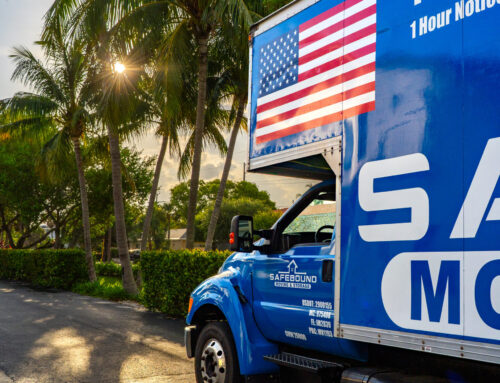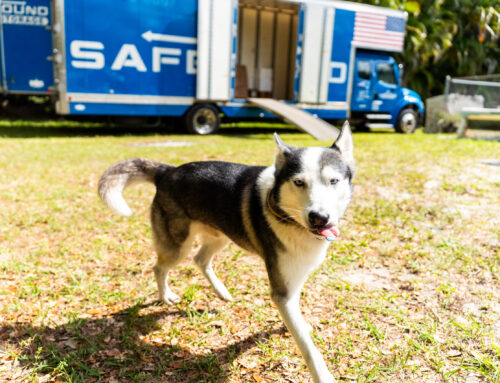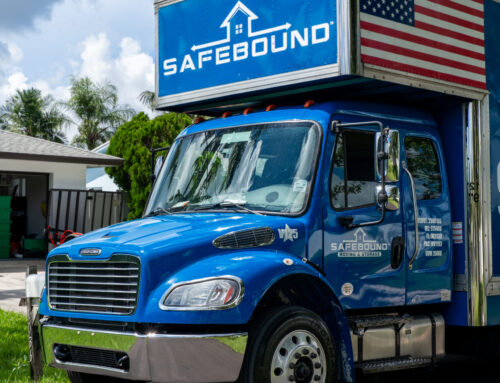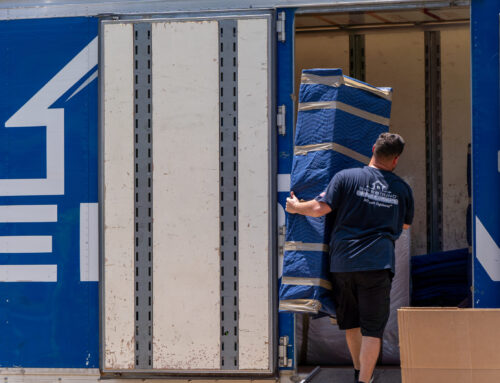Snowbirds in Florida
Every year, snowbirds in Florida vitalize the state economy during the winter months. Snowbirds are typically from northern states and countries like New York, New Jersey, Ohio, Michigan, and Canada. They’re seasonal residents — usually retirees — that migrate to warmer climates like Florida, Arizona, and Hawaii during the cold winter months. Some of them have two homes — their primary residence in the northern states and vacation homes in the warmer climates. Others book extended stays with vacation rental properties.
Whether you’re renting or have your own home down south, you might be moving multiple times in one year. While these moves might be smaller because you’re bringing less stuff, you still want to hire a trusted moving company to get the job done right. Safebound Moving & Storage will get your belongings down to Florida when it gets a bit too cold up north.
These seasonal residents start to come in October when it begins to get chilly and continue to come through the end of the holidays. They begin to leave when the weather warms in April and May. During those winter months, the average temperature in Florida is in the high 60s and the overall population of Florida can grow by 5%. That’s nearly one million new residents. This population fluctuation is most evident in retirement communities where there’s an apparent jump in the number of people dining out and golfing in winter and early spring.
Should Snowbirds Become Florida Residents?
Because some snowbirds end up staying at their warmer destinations for several months at a time, you may be wondering if it’s worth getting a Florida ID. Well, that depends on if you want to change your primary residence. Most snowbirds opt to stay as legal residents in their home state, but some take advantage of Florida’s tax laws.
What are those tax advantages Florida offers? Well, Florida doesn’t have a state income tax and the property tax is less than 1%. If you plan on purchasing your own property, it might be worth looking into changing your legal residence. When you decide which home you’d rather claim on tax returns, then you can determine if you should get a local ID.
Speaking of legal matters, it’s worth noting how long international visitors can stay in Florida. With a B-1 or B-2 visa, international snowbirds can stay in Florida for six months. The B-1 visa is for business trips and the B-2 visa is for tourist purposes. Because most snowbirds are retirees, they should look into acquiring B-2 visas.
Healthcare for Snowbirds
Another logistical hiccup to take into consideration for snowbirds is healthcare. Most people with nationwide health insurers won’t have to worry. If they’re with a major insurance company that provides coverage at their home, the chances are good that healthcare providers in Florida will accept their insurance. To be sure, you can always contact your insurance provider.
However, if you have local insurance that only provides coverage for a small network near your home, you might want to consider switching to a more prominent health insurance provider. And if you’re an international snowbird heading to Florida, consider purchasing private coverage. If you spend half of the year away from home, you want to be able to get proper healthcare if anything happens while you’re away.
Should Snowbirds Rent or Own Property?
When you first start to venture down to Florida during those frigid winter months, you’ll probably be satisfied with renting long-term. An excellent way to find these properties is through popular rental websites like Airbnb and VRBO. You can easily adjust variables like location, price, and size. You’ll certainly find something that perfectly suits your preferences.
While those websites provide a level of convenience that can’t be beaten, local companies can offer personalized services. In a state that hosts the most snowbirds in the country every year, Florida is home to plenty of property management companies. You can find them by searching your destination city name + “winter rental” or “property management.”
After a few winters in the sunshine state, you might think it’s a good idea to purchase a property. We agree. Owning your own winter home is a great goal and will pay off financially. When you’re not in your second home, you can rent the place out. This will both replenish some of the cost of the house itself and means someone will be at your second home when you aren’t. This ensures renters will maintain your property\ during those summer months.
No matter if you plan to spend the winters in your own Florida home or a rental property, we’re the family-owned moving company that can get you there. And, because the winter months aren’t nearly as busy for the moving industry, we can likely get you prices lower than you expected on the exact days you prefer. So give us a call or contact us today to get started with your move to Florida!





